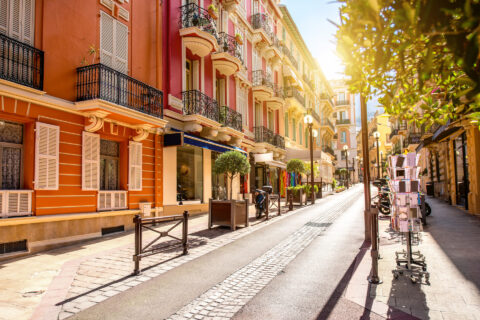Is drinking a cup of coffee an important part of your morning ritual? Do you consider coffee to be the biggest source of antioxidants in your diet?
If you answered yes, then you are, indeed, a coffee person and probably one among the billions of hardcore coffee lovers. Coffee is the most popular drink worldwide with about 400 billion cups consumed each year. A staggering percentage of the world’s population consumes coffee to fuel their daily lives.
Drinking coffee is almost a daily ritual for most adults across the globe. In fact, over 2.25 billion cups of coffee are consumed in the world every day. In Australia, for example, an adult consumes 9.2 cups of coffee per week. While in the U.S., 50% of the population, equivalent to 150 million Americans, drink espresso, cappuccino, latte, or iced/cold coffees.
But, the coffee obsessed may have noticed a significant and emerging trend in the coffee world: more people are opting for organic coffee. Conscientious consumers are choosing organic coffee beans and making healthier coffee break decisions. Organic coffee offers health benefits and those that drink it indirectly contribute to the maintenance of our ecosystem.
Here’s why organic coffee can be a brilliant alternative to your normal cup of joe.
1. Organic coffee meets higher standards.
Organic coffee farms are certified. For instance, in the U.S., the Department of Agriculture sets standards that must be met for a product to be labeled “organic” and carry the seal. “If coffee is labeled ‘organic,’ at least 95 percent of the beans must have been grown under organic conditions.”
In Australia coffee arms are certified by the ACO (Australian Certified Organic). The certification process requires a farmer to implement organic farming techniques which should be in compliance with the national production standards. It allows you to trace back each coffee product to its origin. Certification is a clear indication that all standards for organic production have been met.
2. Organic coffee is superior in taste.
When it comes to organic coffee and its non-organic counterparts, a tremendous amount of effort goes into maintaining rich flavors. Organic coffee is grown under the shade of trees and in complete harmony with the ecosystem. As a result, organic coffee beans are a great source of healthy antioxidants and possess a richer taste. A lot of care goes into growing organic coffee in terms of the farming methods and harvesting practices. You can taste the result.
3. Organic coffee offers health benefits.
Organic coffee may cost a tad more, however paying a little extra can go a long way in maintaining your health. Organic coffee harvesting ensures natural nutrients such as magnesium, vitamin B, zinc, copper, and other minerals remain intact. The bottom line is that coffee, whether organically or conventionally grown, has health benefits.
4. Organic coffee supports sustainability.
Coffee is one of the most in-demand crops in the world, and studies suggest it could become extinct due to environmental changes. “Although there are 124 known species of coffee, most of the coffee that’s grown comes from just two – Arabica and Robusta.” And “coffee only has about 40 plant breeders, compared to thousands in crops like corn, rice or wheat,” according to BBC. Choosing organic coffee will create a demand for sustainability as it is friendlier to the environment, as well as to the farmers who produce it.
5. Organic coffee farmers benefit from your support.
When it comes to organic products, all standards set must be met stringently. Organic coffee is no exception. The coffee is grown with only organic fertilizers, like coffee pulp, chicken manure, or compost. When you buy organic coffee you can support Fair Trade.
“Small-scale family farmers [that] live in remote locations and lack access to credit, so they are vulnerable to middlemen who offer cash for their coffee at a fraction of its value. Fair Trade guarantees farmers a minimum price, and links farmers directly with importers, creating long-term sustainability. Through Fair Trade, farmers earn better incomes, allowing them to hold on to their land and invest in quality.
Help ensure that farmers who have produced your morning cup of organic espresso have been paid fair wages and are treated fairly. A happy farmer will work harder to create a better product.
This article has been edited and condensed.
Peter Bucki is the Marketing Manager at Espresso 1882, Italy’s oldest family owned coffee company, now providing environmentally friendly capsules compatible with Nespresso* machines for domestic use. Connect with @Espresso1882AU on Twitter. (* The trademark is not owned by Caffe Vergnano Sp.A. or associated companies. )
© YFS Magazine. All Rights Reserved. Copying prohibited. All material is protected by U.S. and international copyright laws. Unauthorized reproduction or distribution of this material is prohibited. Sharing of this material under Attribution-NonCommercial-NoDerivatives 4.0 International terms, listed here, is permitted.











